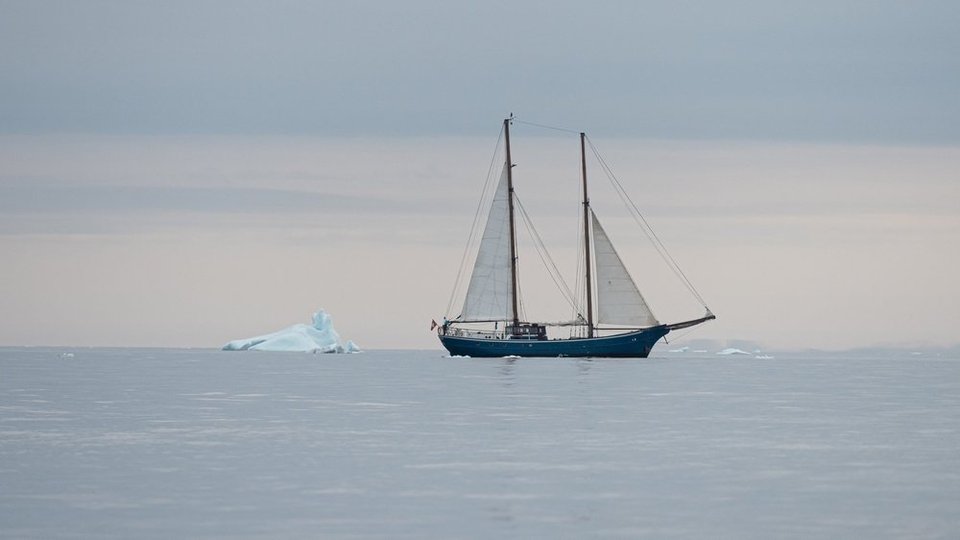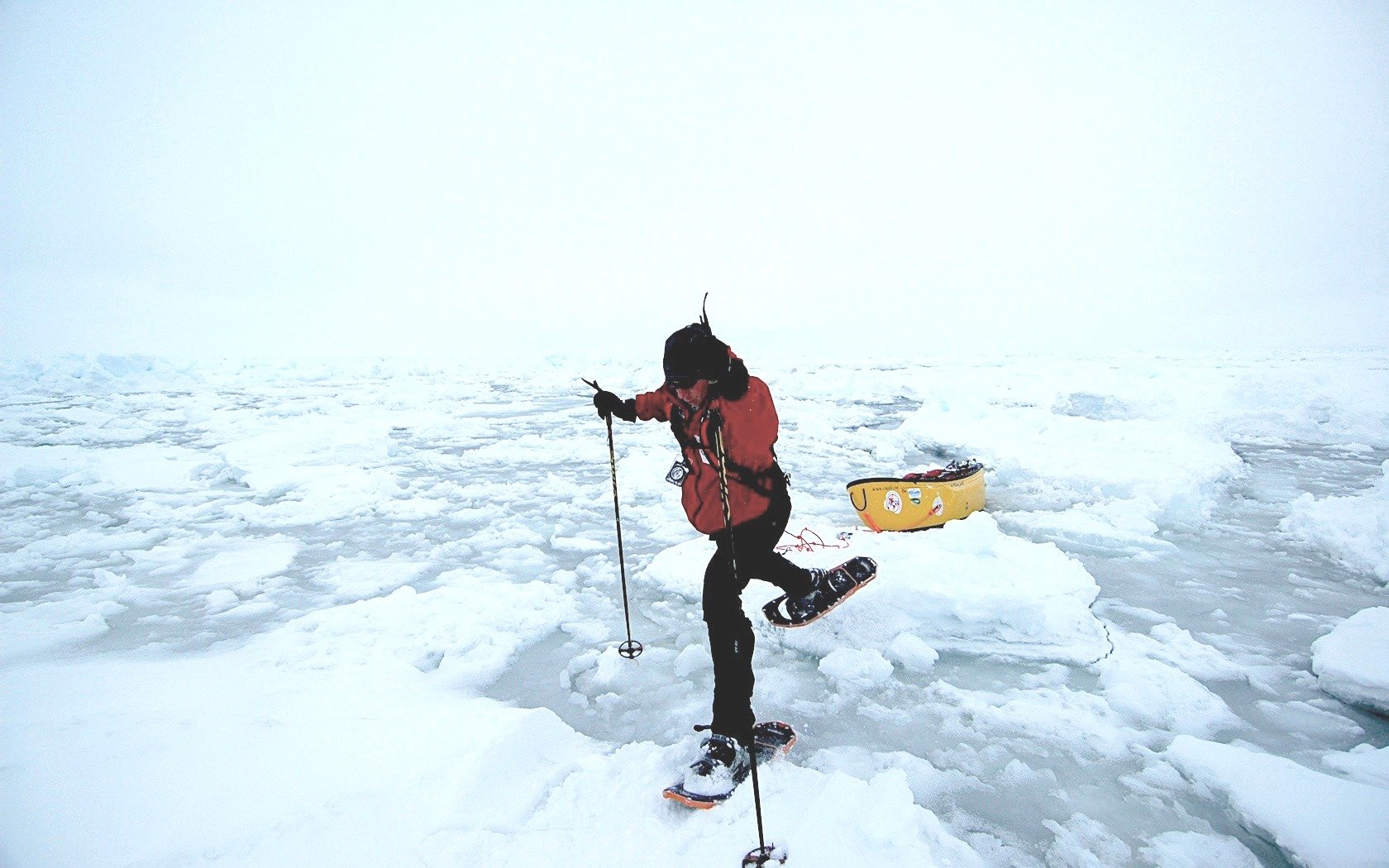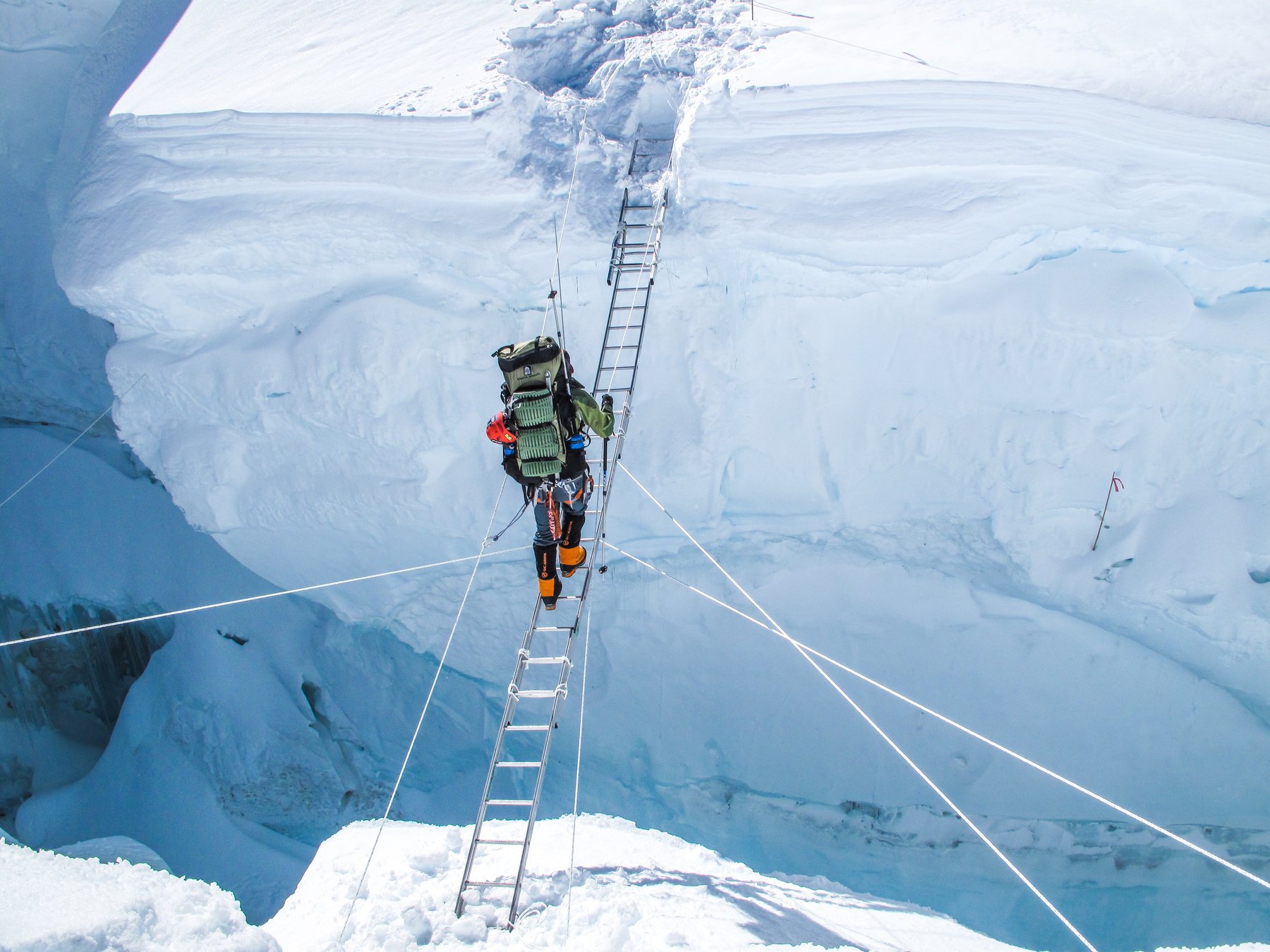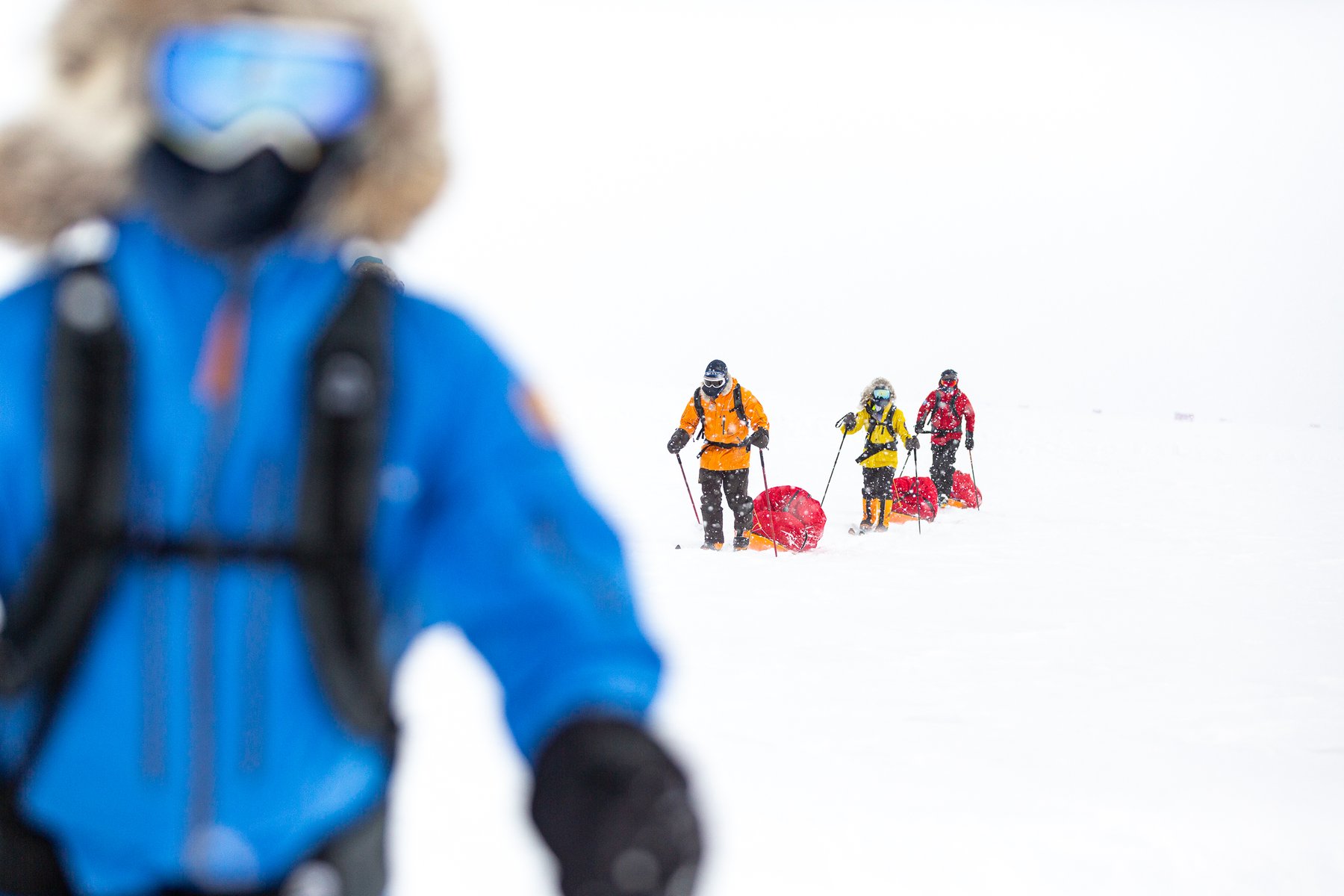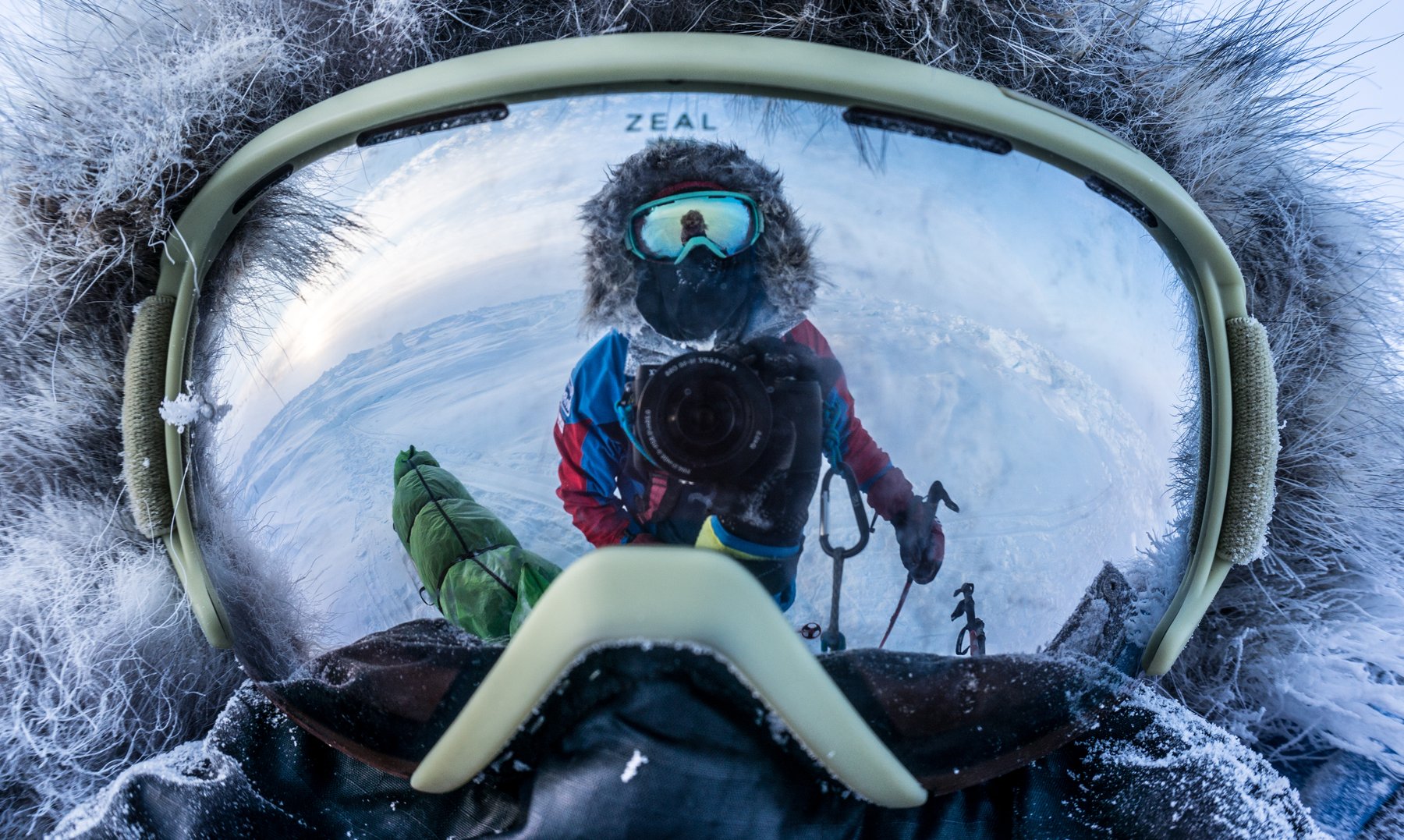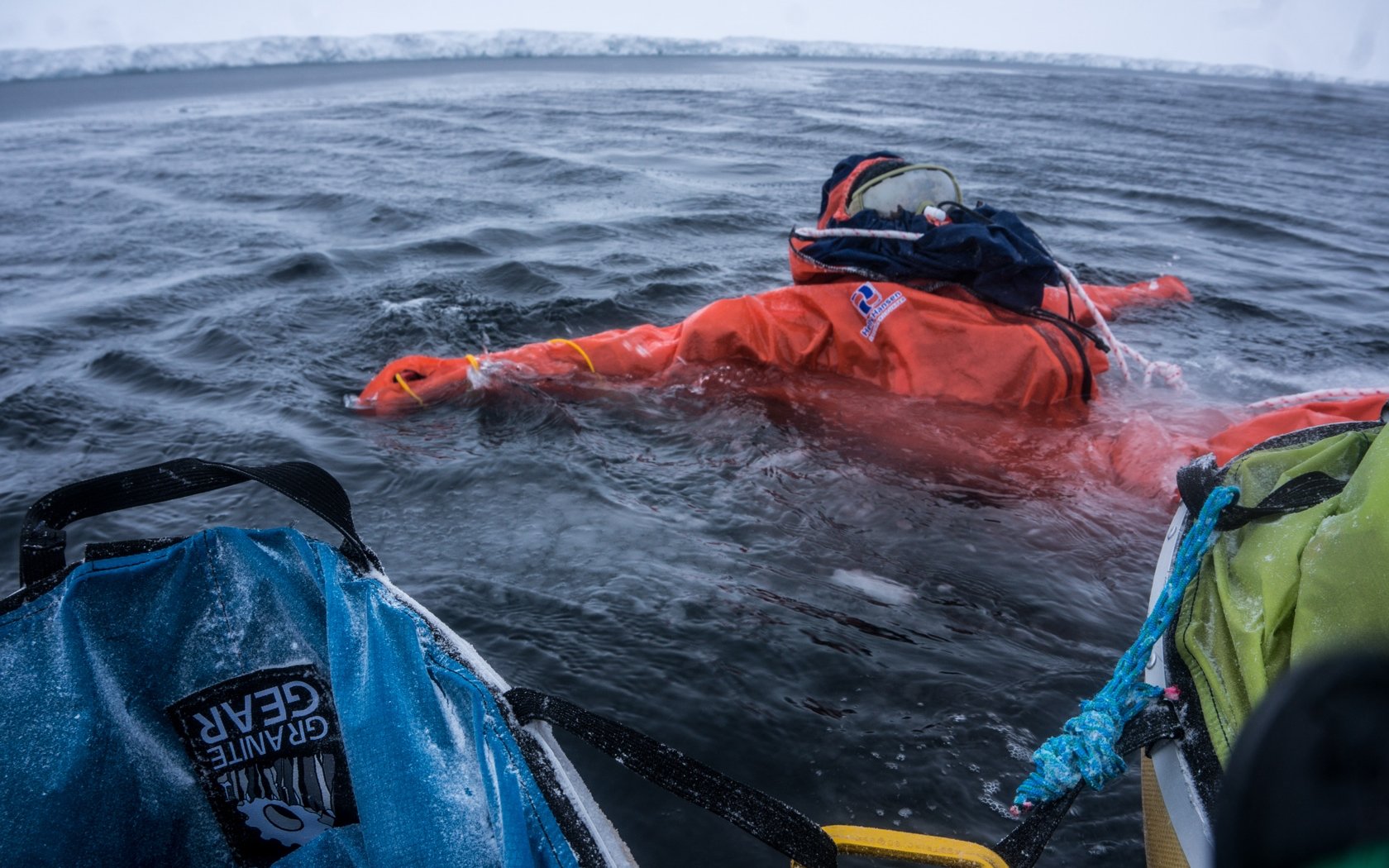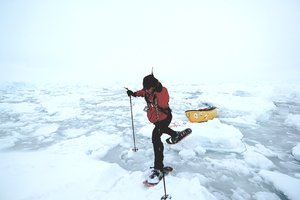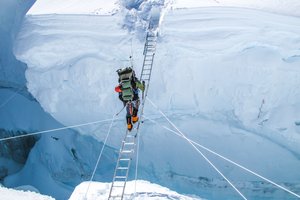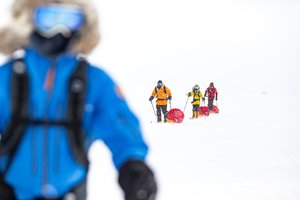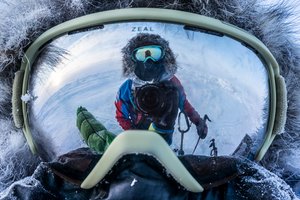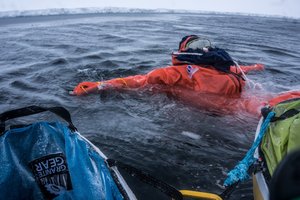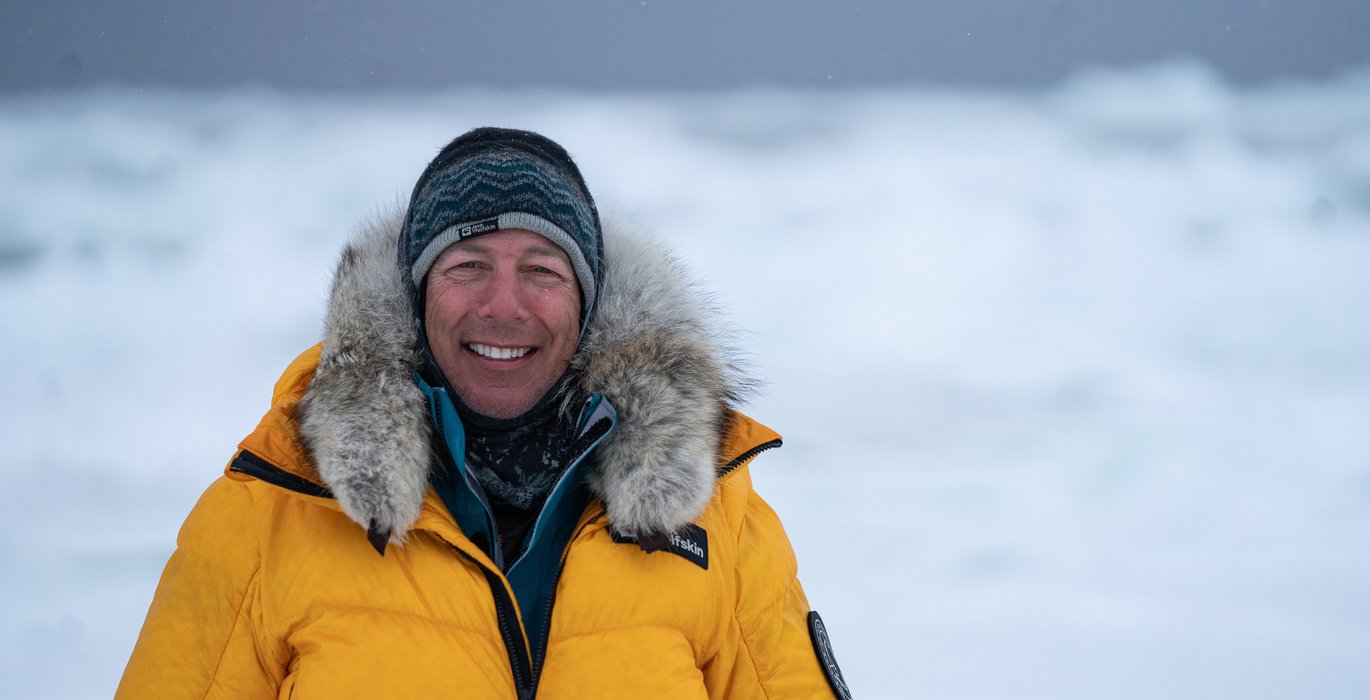
As a vaunted polar explorer and guide, Eric Larsen is used to curve balls. Unpredictable weather, avalanches, unsafe ice conditions and more can tank even the best-laid expedition plans. But his stage 4 colorectal cancer diagnosis in 2021 was the curve ball he didn’t see coming.
His well-honed expedition skills served him well when the unexpected pitch came his way.
Today, the 52-year-old Larsen is back to exploring, having survived his diagnosis and treatment. But it’s been a grueling few years, and Larsen is the first to tell you his experience with serious illness has changed him in many ways.
“It’s weird to be doing expeditions again, but also, normal,” he says. “When I stop and take stock, I’m amazed that I’m here and moving forward. My fear is that I’ll forget all the important lessons I’ve learned over the past few years.”
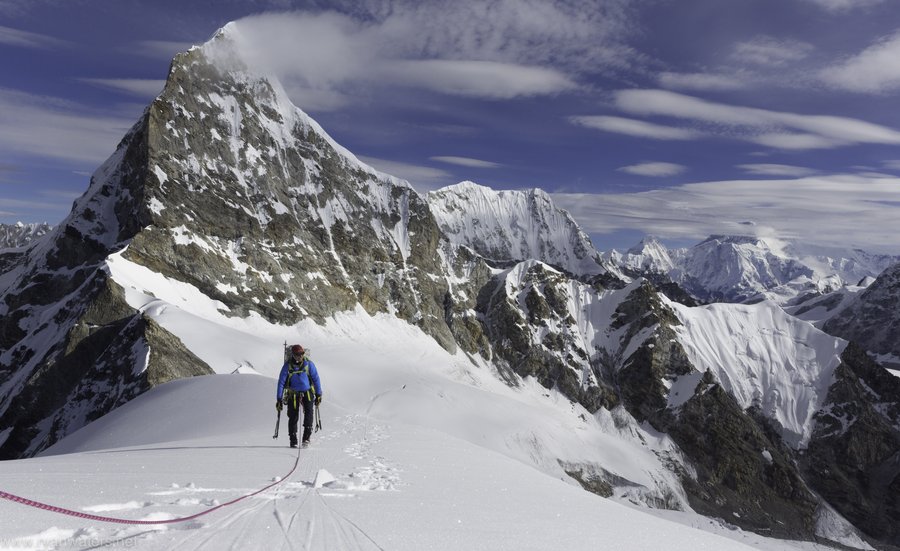
Eric Larsen set a world record for reaching the North Pole, South Pole, and the top of Mt. Everest all in one year. He remains the only explorer to have accomplished that feat. (Photo: Eric Larsen)
To hear him speak, however, it’s doubtful that’s the case. Larsen has been through the ringer with his health, at once unsure he’d even survive his illness. His initial stage 4 diagnosis was upgraded to stage 3b, and he then began a brutal course of treatment: six rounds of chemotherapy, radiation, and a 14-inch resection of his colon. Expeditions were, for a time, the farthest thing from his mind. “When I was diagnosed, I wasn’t thinking about the epic explorations I’d accomplished,” he says. “I was thinking about Maria (his wife) and the kids.”
Setting records
Larsen began his adventure career 25 years ago and has since completed more North and South Pole expeditions than any other American in history. In 2006, he completed the world’s first summer expedition to the North Pole, and in 2010, he set a world record for reaching the North Pole, South Pole, and the top of Mt. Everest all in one year. He remains the only explorer to have accomplished that feat.
Along the way, Larsen also began guiding others in achieving their own goals. From climbing mountains to polar expeditions, Larsen has led a variety of groups and individuals to the Poles, up Everest, Kilimanjaro, and more.
Because of his love for the remote, beautiful, cold places on the planet, Larsen has also been involved in various organizations designed to protect them, especially in the face of climate change. In 2014, Larsen and expedition partner Ryan Waters trekked to the North Pole to call attention to the changes taking place. It resulted in Larsen’s book, “On Thin Ice,” and a documentary “Melting: Last Race to the Pole.”
“I used to think that if I accomplished a goal, then everything would be easy...But that’s never been the case. I’ve accepted that this is the path I’m on, appreciating the good times and understanding the value of the struggle.”
Eric Larsen
This year, upon returning to full-fledged exploring and guiding, Larsen’s plans served as a vivid reminder of how climate change is impacting polar expeditions. With a plan to lead five clients to the North Pole, Larsen had to scratch everything when their ice landing strip about 70 miles below the Pole began melting and literally fell apart. “To be able to return after so many years and being sick would have provided a nice book end to my story,” he admits. “I’m disappointed but now, I get to ride my bike and enjoy summer with my family.”
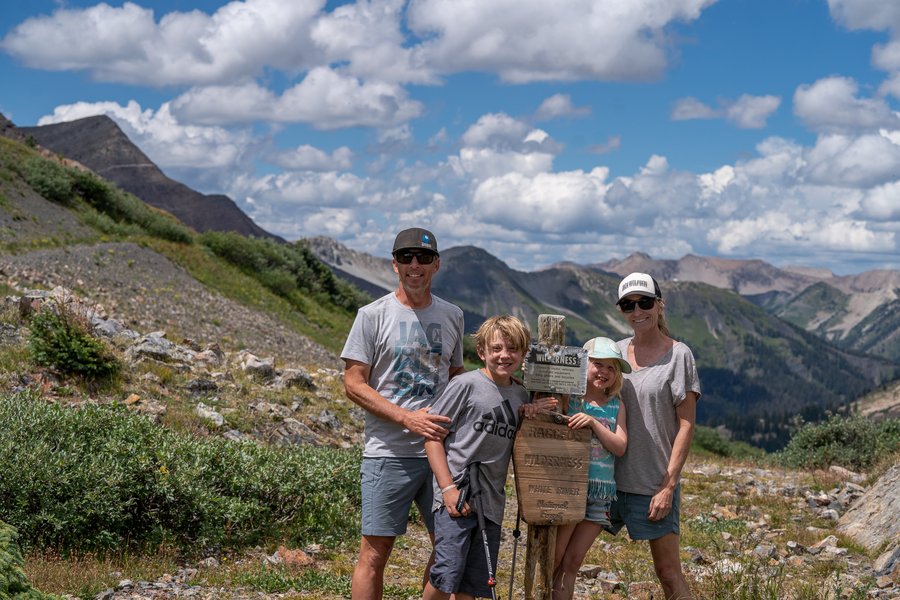
Larsen was diagnosed with stage 4 colorectal cancer in 2021. (Photo: Eric Larsen)
Applying life’s lessons
To say that Larsen has mental toughness is an understatement, and that well-honed skill became a huge asset the day he received his cancer diagnosis. As much as Larsen could bring to the table in a fight with cancer, however, he’s the first to admit how much the experience humbled and changed him. “Cancer taught me the role of compassion and gave me an understanding of the fact that everyone is going through something,” he explains. “Maybe every situation isn’t life or death, but everyone has something that feels like a weight.”
For Larsen, the battle was mental, physical, and emotional. “I thought my life and career were over,” he admits. “Quickly you see your world go away.”
Sponsors who had long supported a healthy Larsen, began to drop off. Along the way, however, he picked up a new, different kind of partner in Jack Wolfskin, coordinating on a line of expedition wear. “My ideal partnership, which I have now, isn’t what I had pictured it to be during chemo,” he says.
In addition to guiding and leading expeditions again, Larsen has also created a BIPOC scholarship for his Polar Academy training course in Northern Minnesota. “My goal is to make winter travel less white,” he explains. “We lined up sponsors, gear and equipment and trained six BIPOC people in the outdoors. I learned as much from the group as they did from me.”
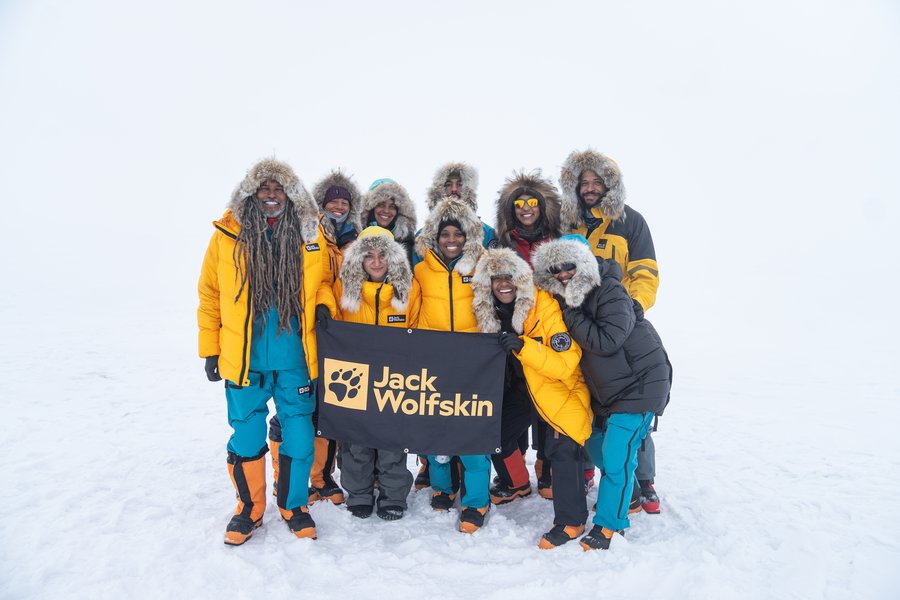
Larsen created a BIPOC Polar Scholarship which covered all expenses for six BIPOC individuals to participate in Eric's level 1 polar training course. (Photo: Eric Larsen)
As far as his own expeditions go, Larsen has had to rethink many of his methods to make it feasible in a changed, post-cancer body. Larsen now contends with low anterior resection syndrome (LARS), which leads to bowel dysfunction. “Last year, I’d be in the bathroom for hours, and often couldn’t leave the house,” he says. “The only way I knew to solve it was to not eat, which isn’t practical. It reached the point where it was going to impact the safety of my trips.”
Thanks to a Facebook group of colorectal cancer survivors, Larsen learned to give himself enemas and perfected a workable system for his trips. “This winter on trips, I put liters of water into a bag and brought along a collapsible toilet, and that’s been life changing,” he says. “Now I can guide, eat the food I need for energy, and not give it a second thought. It’s a challenge, but the benefits are so worthwhile.”
Beyond the physical aspects, Larsen’s cancer journey also gave him pause about his chosen career path. “The trips are so arbitrary and there’s definitely some ego involved in that,” he says. “There’s an arrogance to purposely putting yourself in life threatening situations, especially when you contrast that to fighting cancer.”
Larsen has made some peace with that, however, and now views the obstacles as the path. “I used to think that if I accomplished a goal, then everything would be easy,” he says. “But that’s never been the case. I’ve accepted that this is the path I’m on, appreciating the good times and understanding the value of the struggle.”
